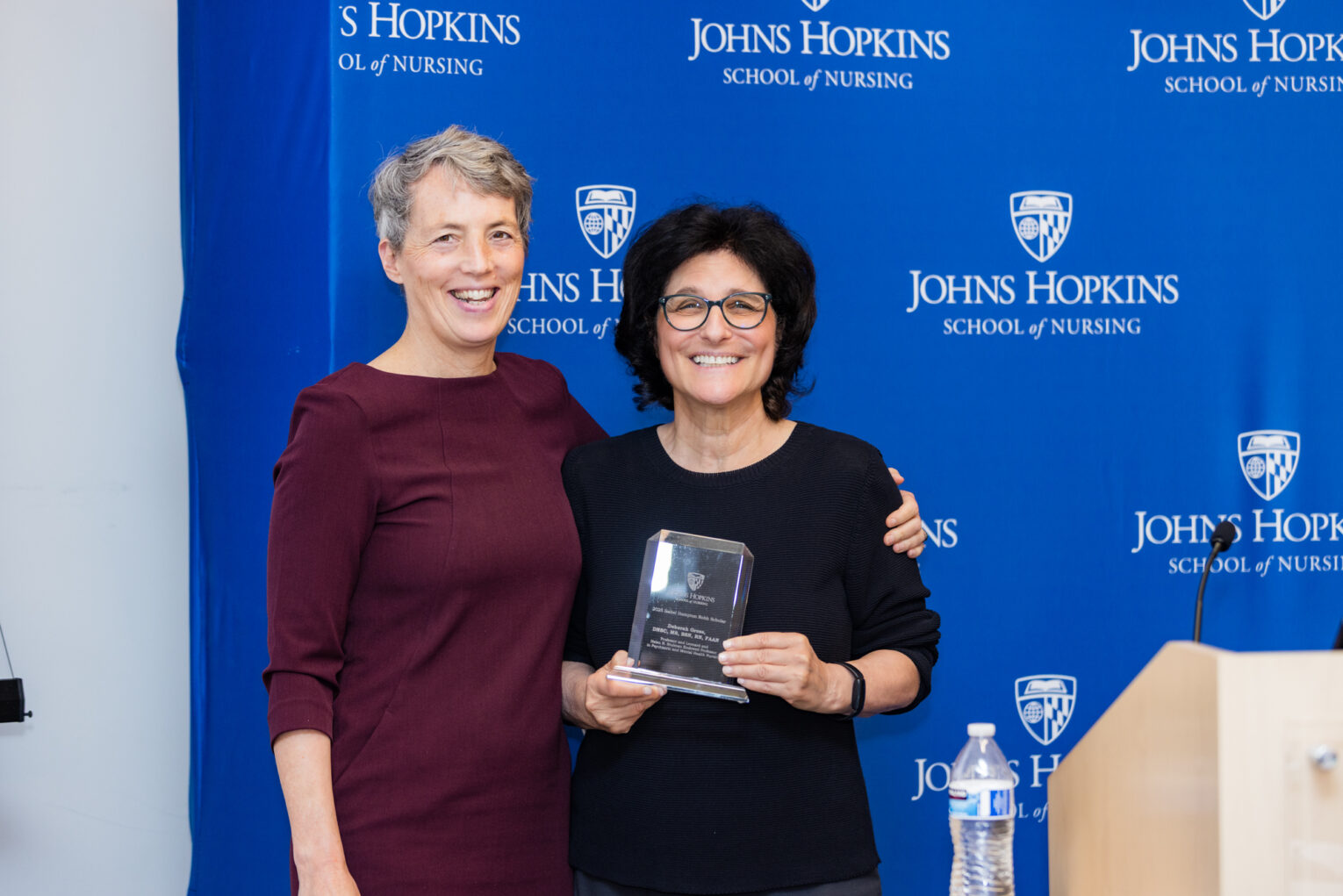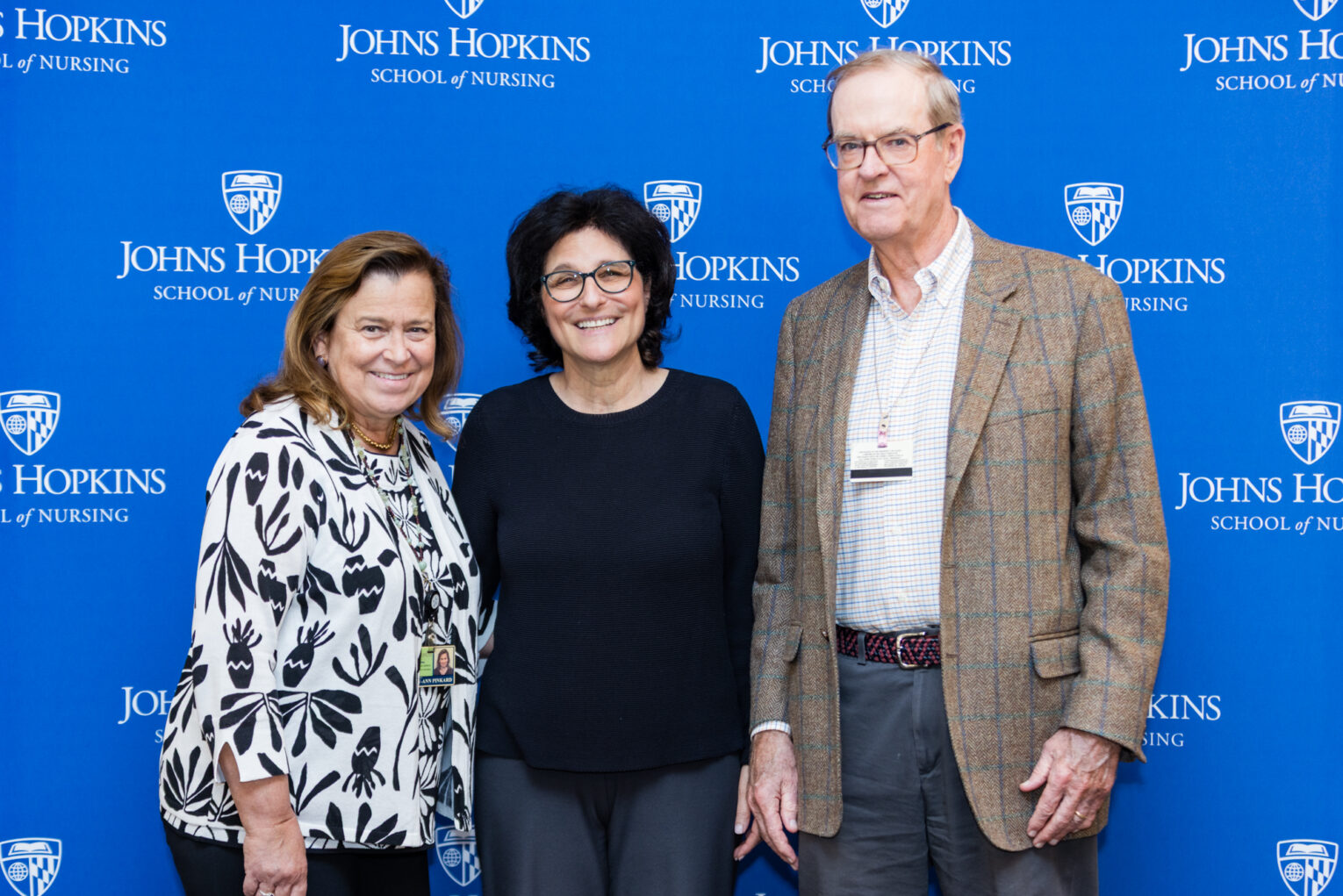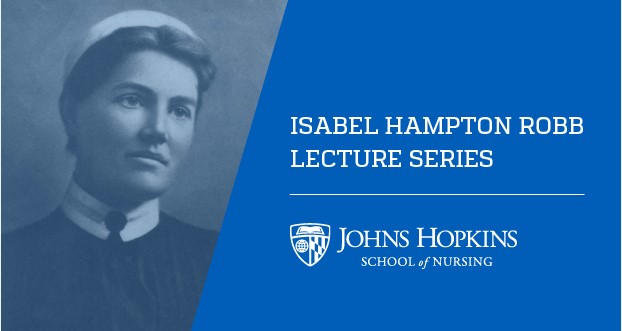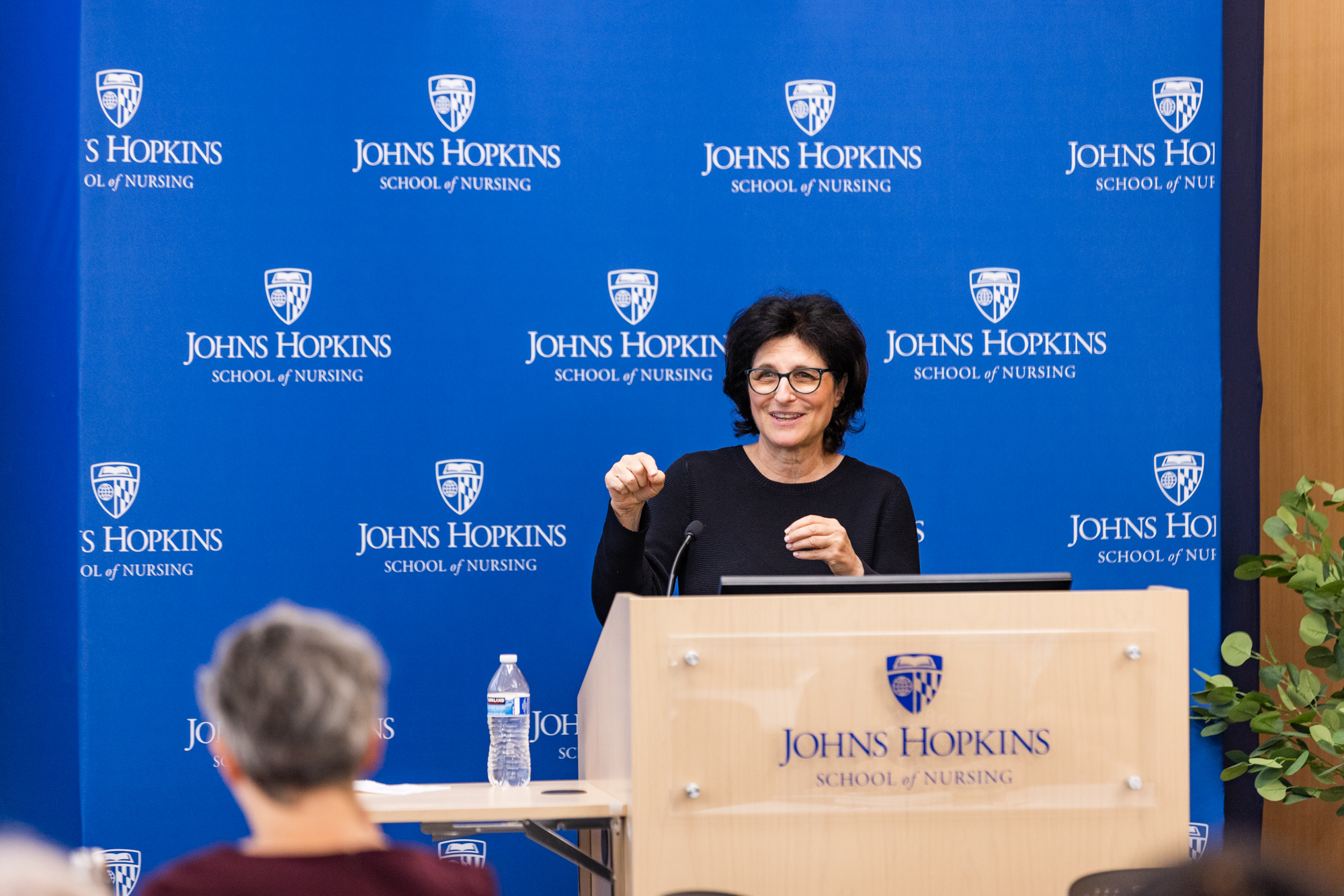At the Johns Hopkins School of Nursing’s 2025 Isabel Hampton Robb Lecture, Dr. Deborah Gross, the Leonard and Helen R. Stulman Endowed Professor in Psychiatric and Mental Health Nursing, delivered an inspiring presentation that traced her decades-long journey to strengthen families through research, innovation, and community partnerships.
Dr. Gross began by reflecting on the state of nursing and mental health when she first entered the field in the 1970s, when psychoanalysis dominated psychiatry and parents were often blamed for their children’s problems. Over the decades, research on attachment and early brain development transformed that thinking, underscoring the vital role of safe, stable, and nurturing relationships in child development.

This understanding led Dr. Gross to develop the Chicago Parent Program, a group-based, evidence-based parenting program. What began in Chicago over 20 years ago has now reached more than 16,000 families across the United States.
“Parenting is a highly modifiable variable,” Dr. Gross said. “If we want to support children, we must invest in parents. They are the true change agents for their families.”
Her presentation also highlighted a Baltimore-based partnership with city schools and the Fund for Educational Excellence that started in 2014. Today, the Chicago Parent Program continues to thrive and grow in Baltimore City and other school districts across Maryland.

Even amid challenges like the COVID-19 pandemic, families remained eager to participate, joining virtual sessions that built social connection and resilience. Gross shared in one study that over half of participating parents had experienced significant childhood adversity, yet found healing through the group experience:
“As a parent, sometimes you feel like you’re the only one going through it. But when you hear others share their stories, it doesn’t make you feel so alone.”
Looking ahead, Dr. Gross described ongoing research that is testing the Chicago Parent Program in urban and rural communities to understand its impact on early school outcomes. Their team has also adapted the program for individual families using telehealth delivery in child mental health and Head Start programs. Each version maintains the program’s core commitment to flexibility, accessibility, and evidence-based impact.
Watch the 2025 Isabel Hampton Robb Lecture in its entirety


